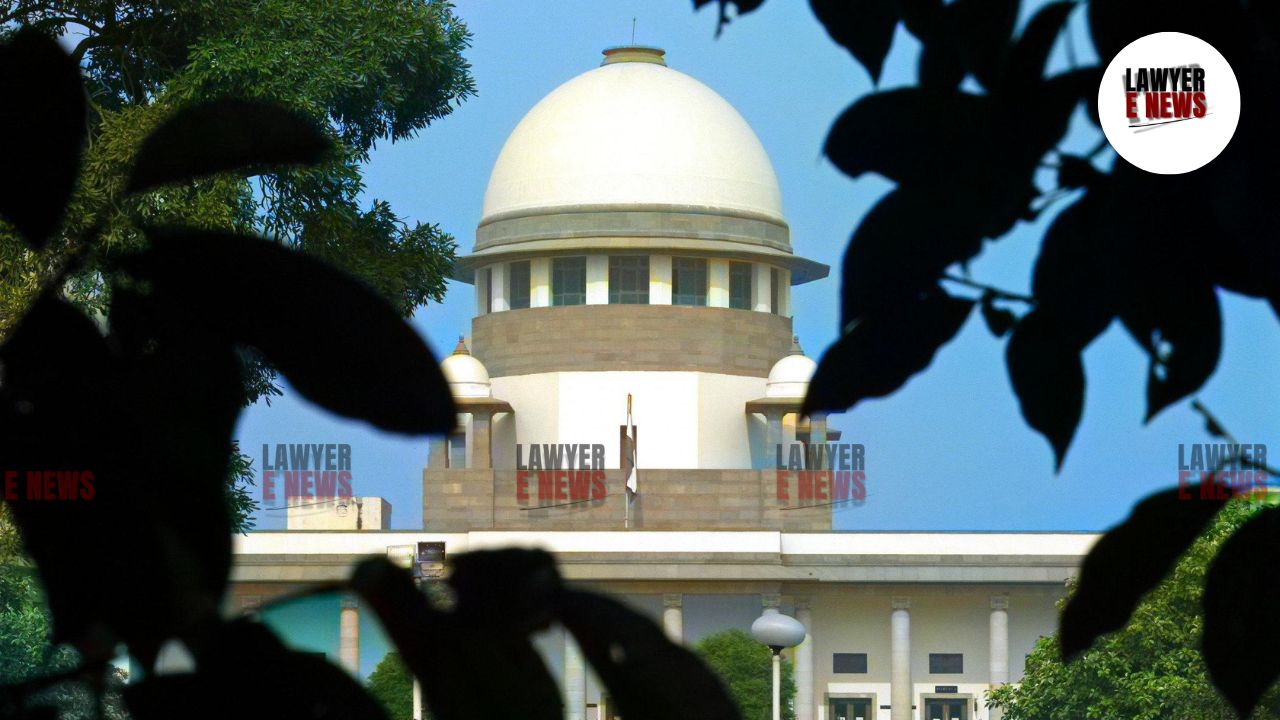-
by sayum
16 February 2026 8:46 AM



Criminal Convictions Cannot Be Based on Suspicion and Broken Chains of Circumstantial Evidence – Supreme Court Orders Immediate Release of Appellant and setting aside the conviction and life sentence of a man accused of abetting a double murder. The Court found that the prosecution had failed to prove its case beyond reasonable doubt, pointing to serious inconsistencies in evidence, unreliable witness testimonies, and inconclusive forensic findings.
Writing for the bench, Chief Justice Sanjiv Khanna made a strong observation on the credibility of witnesses, stating, "Eyewitnesses who remain silent for nine days cannot be considered reliable. Their unexplained delay in disclosing crucial information casts serious doubt on their credibility." The Court ruled that the testimonies of these witnesses, who came forward only after a considerable delay, could not be relied upon to convict the appellant.
The case arose from the murders of Dhaneswar Kata and his wife, Nirupama Kata, who were found dead with gunshot wounds on June 1, 2013, on the terrace of their home in Nuapada, Odisha. Despite the gruesome nature of the crime, the First Information Report (FIR) did not name any suspect, and even the family members of the deceased, who were present in the house, failed to identify any assailants.
It was only after nine days that the police arrested the appellant, Siba Nial @ Trilochan, along with his co-accused, Prabhulal, based on circumstantial evidence and alleged witness statements. However, the Supreme Court questioned the credibility of these so-called eyewitnesses, noting that their delayed statements could not be trusted, particularly in a case where the crime had sent shockwaves through the locality.
The Court further pointed out that the forensic evidence was inconclusive. While the police claimed to have recovered a country-made pistol from the appellant, the ballistic report failed to establish that the bullets found at the crime scene were fired from the recovered weapon. Chief Justice Khanna stated, "Forensic evidence must establish a direct link between the crime and the accused. When such a link is missing, the accused is entitled to the benefit of doubt."
The prosecution had also put forward conflicting motives for the crime—one theory suggested a property dispute, while another claimed the murders were due to opposition to an inter-caste marriage. The Supreme Court dismissed both arguments, ruling that motive alone cannot substitute for conclusive evidence of guilt.
The judgment emphasized that a criminal conviction must be based on a complete and unbroken chain of circumstantial evidence, leading to only one conclusion—the guilt of the accused. Since the prosecution’s case was riddled with inconsistencies, the Supreme Court overturned the conviction and ordered the appellant’s immediate release.
Chief Justice Khanna concluded with a strong reaffirmation of the principles of criminal law, stating, "Criminal trials must be conducted with the highest standards of fairness. If there are serious doubts in the prosecution’s case, the accused must be acquitted. It is better that ten guilty persons escape than one innocent person suffer."
With this verdict, the Supreme Court has once again underlined that mere suspicion, unreliable witnesses, and inconclusive forensic evidence cannot be the basis for depriving a person of their liberty. The ruling sends a clear message that criminal convictions must stand on solid legal footing, not on conjecture and speculation.
ate of Decision: February 11, 2025
